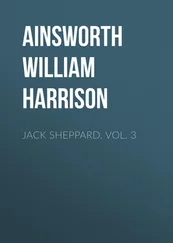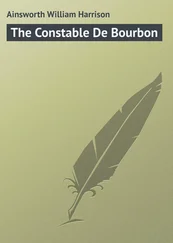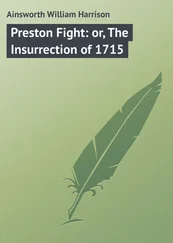William Ainsworth - Jack Sheppard
Здесь есть возможность читать онлайн «William Ainsworth - Jack Sheppard» — ознакомительный отрывок электронной книги совершенно бесплатно, а после прочтения отрывка купить полную версию. В некоторых случаях можно слушать аудио, скачать через торрент в формате fb2 и присутствует краткое содержание. Жанр: foreign_prose, literature_19, Европейская старинная литература, на английском языке. Описание произведения, (предисловие) а так же отзывы посетителей доступны на портале библиотеки ЛибКат.
- Название:Jack Sheppard
- Автор:
- Жанр:
- Год:неизвестен
- ISBN:нет данных
- Рейтинг книги:5 / 5. Голосов: 1
-
Избранное:Добавить в избранное
- Отзывы:
-
Ваша оценка:
- 100
- 1
- 2
- 3
- 4
- 5
Jack Sheppard: краткое содержание, описание и аннотация
Предлагаем к чтению аннотацию, описание, краткое содержание или предисловие (зависит от того, что написал сам автор книги «Jack Sheppard»). Если вы не нашли необходимую информацию о книге — напишите в комментариях, мы постараемся отыскать её.
Jack Sheppard — читать онлайн ознакомительный отрывок
Ниже представлен текст книги, разбитый по страницам. Система сохранения места последней прочитанной страницы, позволяет с удобством читать онлайн бесплатно книгу «Jack Sheppard», без необходимости каждый раз заново искать на чём Вы остановились. Поставьте закладку, и сможете в любой момент перейти на страницу, на которой закончили чтение.
Интервал:
Закладка:
The child fell within a short distance of Darrell, who, hearing the splash, struck out in that direction, and caught it before it sank. At this juncture, the sound of oars reached his ears, and he perceived Mr. Wood's boat bearing up towards him.
"Here he is, waterman," exclaimed the benevolent carpenter. "I see him!—row for your life!"
"That's the way to miss him, master," replied Ben coolly. "We must keep still. The tide'll bring him to us fast enough."
Ben judged correctly. Borne along by the current, Darrell was instantly at the boat's side.
"Seize this oar," vociferated the waterman.
"First take the child," cried Darrell, holding up the infant, and clinging to the oar with a dying effort.
"Give it me," returned the carpenter; "all's safe. Now lend me your own hand."
"My strength fails me," gasped the fugitive. "I cannot climb the boat. Take my child to—it is—oh God!—I am sinking—take it—take it!"
"Where?" shouted Wood.
Darrell attempted to reply. But he could only utter an inarticulate exclamation. The next moment his grasp relaxed, and he sank to rise no more.
Rowland, meantime, alarmed by the voices, snatched a torch from his attendant, and holding it over the side of the wherry, witnessed the incident just described.
"Confusion!" cried he; "there is another boat in our wake. They have rescued the child. Loose the wherry, and stand to your oars—quick—quick!"
These commands were promptly obeyed. The boat was set free, and the men resumed their seats. Rowland's purposes were, however, defeated in a manner as unexpected as appalling.
During the foregoing occurrences a dead calm prevailed. But as Rowland sprang to the helm, and gave the signal for pursuit, a roar like a volley of ordnance was heard aloft, and the wind again burst its bondage. A moment before, the surface of the stream was black as ink. It was now whitening, hissing, and seething like an enormous cauldron. The blast once more swept over the agitated river: whirled off the sheets of foam, scattered them far and wide in rain-drops, and left the raging torrent blacker than before. The gale had become a hurricane: that hurricane was the most terrible that ever laid waste our city. Destruction everywhere marked its course. Steeples toppled, and towers reeled beneath its fury. Trees were torn up by the roots; many houses were levelled to the ground; others were unroofed; the leads on the churches were ripped off, and "shrivelled up like scrolls of parchment." Nothing on land or water was spared by the remorseless gale. Most of the vessels lying in the river were driven from their moorings, dashed tumultuously against each other, or blown ashore. All was darkness, horror, confusion, ruin. Men fled from their tottering habitations, and returned to them scared by greater dangers. The end of the world seemed at hand.
At this time of universal havoc and despair,—when all London quaked at the voice of the storm,—the carpenter, who was exposed to its utmost fury, fared better than might have been anticipated. The boat in which he rode was not overset. Fortunately, her course had been shifted immediately after the rescue of the child; and, in consequence of this movement, she received the first shock of the hurricane, which blew from the southwest, upon her stern. Her head dipped deeply into the current, and she narrowly escaped being swamped. Righting, however, instantly afterwards, she scudded with the greatest rapidity over the boiling waves, to whose mercy she was now entirely abandoned. On this fresh outburst of the storm, Wood threw himself instinctively into the bottom of the boat, and clasping the little orphan to his breast, endeavoured to prepare himself to meet his fate.
While he was thus occupied, he felt a rough grasp upon his arm, and presently afterwards Ben's lips approached close to his ear. The waterman sheltered his mouth with his hand while he spoke, or his voice would have been carried away by the violence of the blast.
"It's all up, master," groaned Ben, "nothin' short of a merracle can save us. The boat's sure to run foul o' the bridge; and if she 'scapes stavin' above, she'll be swamped to a sartainty below. There'll be a fall of above twelve foot o' water, and think o' that on a night as 'ud blow a whole fleet to the devil."
Mr. Wood did think of it, and groaned aloud.
"Heaven help us!" he exclaimed; "we were mad to neglect the old sailor's advice."
"That's what troubles me," rejoined Ben. "I tell 'ee what, master, if you're more fortinate nor I am, and get ashore, give old saltwater your fare. I pledged my thumb that, dead or alive, I'd pay the wager if I lost; and I should like to be as good as my word."
"I will—I will," replied Wood hastily. "Was that thunder?" he faltered, as a terrible clap was heard overhead.
"No; it's only a fresh gale," Ben returned: "hark! now it comes."
"Lord have mercy upon us, miserable sinners!" ejaculated Wood, as a fearful gust dashed the water over the side of the boat, deluging him with spray.
The hurricane had now reached its climax. The blast shrieked, as if exulting in its wrathful mission. Stunning and continuous, the din seemed almost to take away the power of hearing. He, who had faced the gale, would have been instantly stifled. Piercing through every crevice in the clothes, it, in some cases, tore them from the wearer's limbs, or from his grasp. It penetrated the skin; benumbed the flesh; paralysed the faculties. The intense darkness added to the terror of the storm. The destroying angel hurried by, shrouded in his gloomiest apparel. None saw, though all felt, his presence, and heard the thunder of his voice. Imagination, coloured by the obscurity, peopled the air with phantoms. Ten thousand steeds appeared to be trampling aloft, charged with the work of devastation. Awful shapes seemed to flit by, borne on the wings of the tempest, animating and directing its fury. The actual danger was lost sight of in these wild apprehensions; and many timorous beings were scared beyond reason's verge by the excess of their fears.
This had well nigh been the case with the carpenter. He was roused from the stupor of despair into which he had sunk by the voice of Ben, who roared in his ear, "The bridge!—the bridge!"
CHAPTER VII.
Old London Bridge
London, at the period of this history, boasted only a single bridge. But that bridge was more remarkable than any the metropolis now possesses. Covered with houses, from one end to the other, this reverend and picturesque structure presented the appearance of a street across the Thames. It was as if Grace-church Street, with all its shops, its magazines, and ceaseless throng of passengers, were stretched from the Middlesex to the Surrey shore. The houses were older, the shops gloomier, and the thoroughfare narrower, it is true; but the bustle, the crowd, the street-like air was the same. Then the bridge had arched gateways, bristling with spikes, and garnished (as all ancient gateways ought to be) with the heads of traitors. In olden days it boasted a chapel, dedicated to Saint Thomas; beneath which there was a crypt curiously constructed amid the arches, where "was sepultured Peter the Chaplain of Colechurch, who began the Stone Bridge at London:" and it still boasted an edifice (though now in rather a tumbledown condition) which had once vied with a palace,—we mean Nonesuch House. The other buildings stood close together in rows; and so valuable was every inch of room accounted, that, in many cases, cellars, and even habitable apartments, were constructed in the solid masonry of the piers.
Old London Bridge (the grandsire of the present erection) was supported on nineteen arches, each of which
Would a Rialto make for depth and height!
The arches stood upon enormous piers; the piers on starlings, or jetties, built far out into the river to break the force of the tide.
Читать дальшеИнтервал:
Закладка:
Похожие книги на «Jack Sheppard»
Представляем Вашему вниманию похожие книги на «Jack Sheppard» списком для выбора. Мы отобрали схожую по названию и смыслу литературу в надежде предоставить читателям больше вариантов отыскать новые, интересные, ещё непрочитанные произведения.
Обсуждение, отзывы о книге «Jack Sheppard» и просто собственные мнения читателей. Оставьте ваши комментарии, напишите, что Вы думаете о произведении, его смысле или главных героях. Укажите что конкретно понравилось, а что нет, и почему Вы так считаете.












